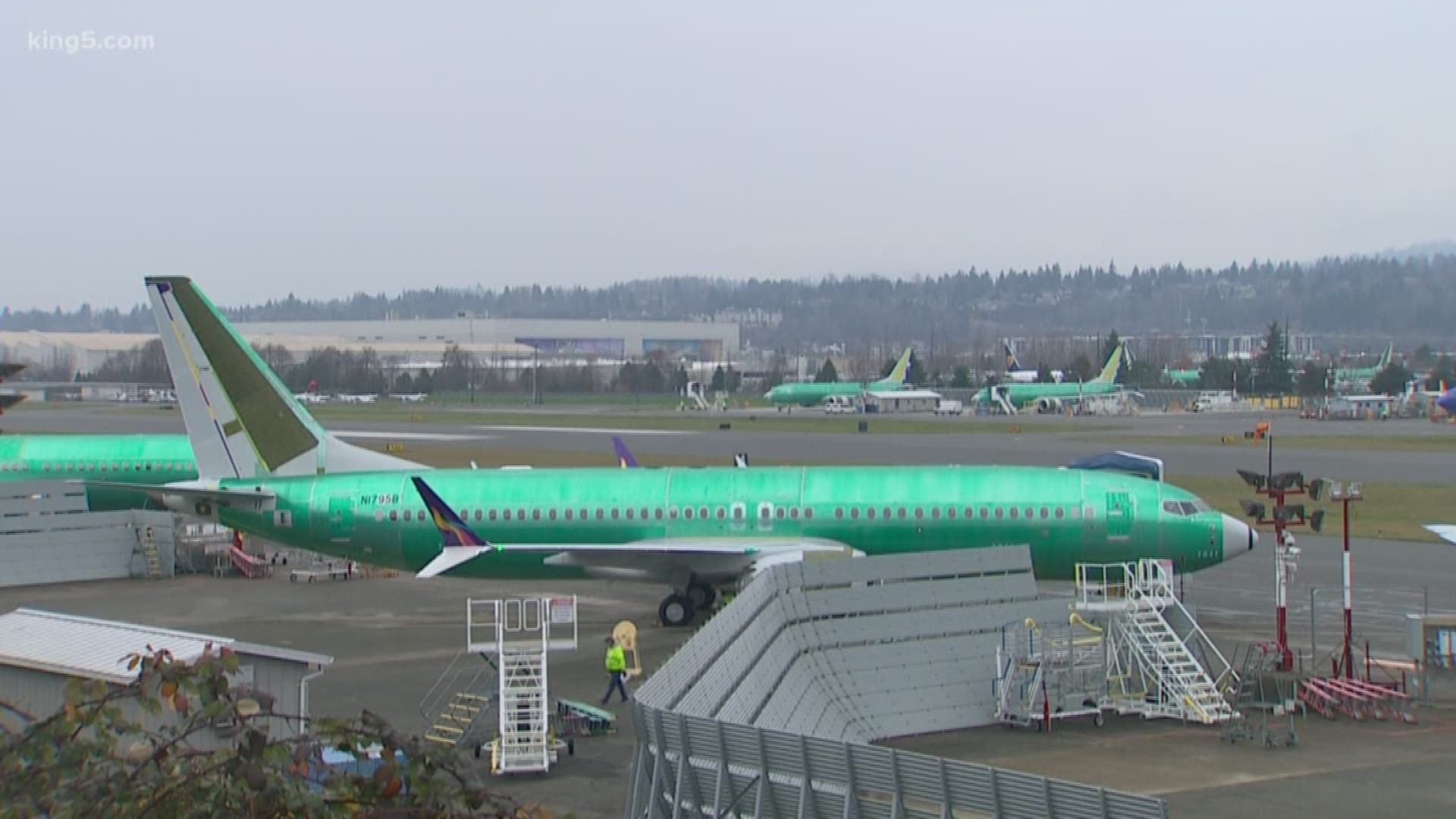SEATTLE — Steve Dickson, the new head of the Federal Aviation Administration (FAA), and two former Boeing employees will go before the House Transportation and Infrastructure Committee in Washington D.C. on Wednesday.
Dickson is expected to address changes to the certification process that allowed a design flaw in a safety system to get through. The Maneuvering Characteristics Augmentation System (MCAS) is blamed in two Boeing 737 MAX crashes that killed 346 people.
“The agency’s role in approving MCAS and other key flight control features on the 737 MAX, including why critical information was not adequately considered in the certification process," Rep. Rick Larsen, the Washington Democrat who leads the Aviation Subcommittee, said in his opening remarks released Tuesday. "I expect to hear from Administrator Dickson about the specific steps the FAA is taking to restore public confidence in its ability to maintain the safest aerospace system in the world."
Dickson won't be the only witness. A second panel includes Ed Pierson, a retired Boeing manager at the company's Renton factory. Pierson told NBC News in an interview broadcast Tuesday that the factory has become dangerous as the company had a rocky ramp-up in producing 52 airplanes per month back in 2018. Pierson left the company before the first MAX crash in late October of that year.
Boeing responded to Pierson's claims in a statement, acknowledging Boeing leadership was aware of 737 production line challenges in 2018. The company said it "devoted significant attention and resources" to address those challenges and maintain production quality. However, Boeing said suggesting a linkage between Pierson's concerns and the MAX crashes was "completely unfounded."
"Mr. Pierson raises issues about the production of the 737 MAX, yet none of the authorities investigating these accidents have found that production conditions in the 737 factory contributed in any way to these accidents," a Boeing spokesperson said in a statement. "And the suggestion of such a linkage is inconsistent with the facts that have been reported about these accidents."
Others are concerned that the issues involving production in the factory are being conflated with the design issue of the MCAS system, which is unique to the 737 MAX. Investigators believe MCAS caused the nose of the planes that crashed to point downward because of erroneous data coming from a single Angle of Attack sensor on the nose.
"They are not related. They are not one in the same," said Michel Merluzeau, who has studied the industry for decades and now works for Air Insight Research.
"I question the objective here. Why is that suddenly relevant to the inquiry?" he added, referring to the factory issues.
Larsen explained the reasons this way: “The second panel will feature two former Boeing and FAA employees who are stepping forward to share their concerning experiences with questionable management decision-making that seem to prioritize economic interests over public safety."

